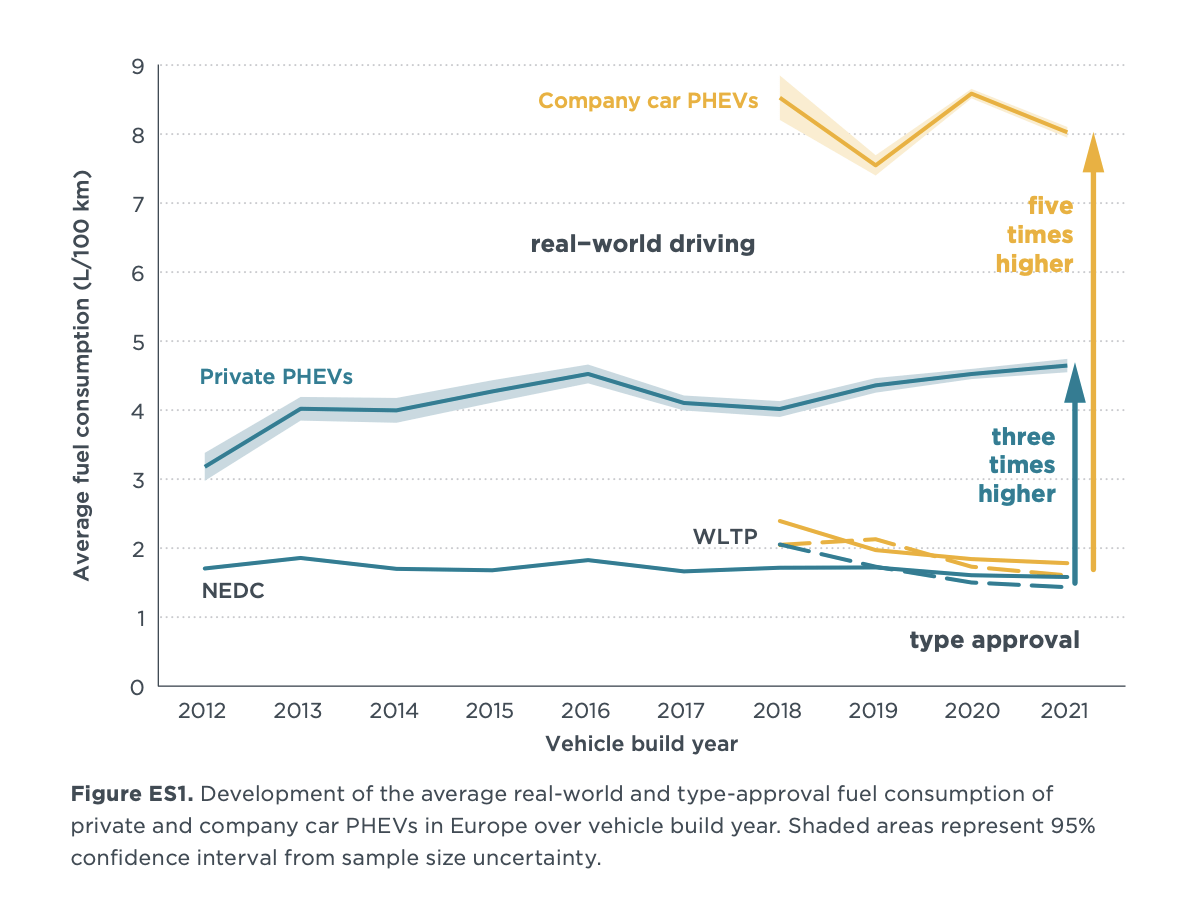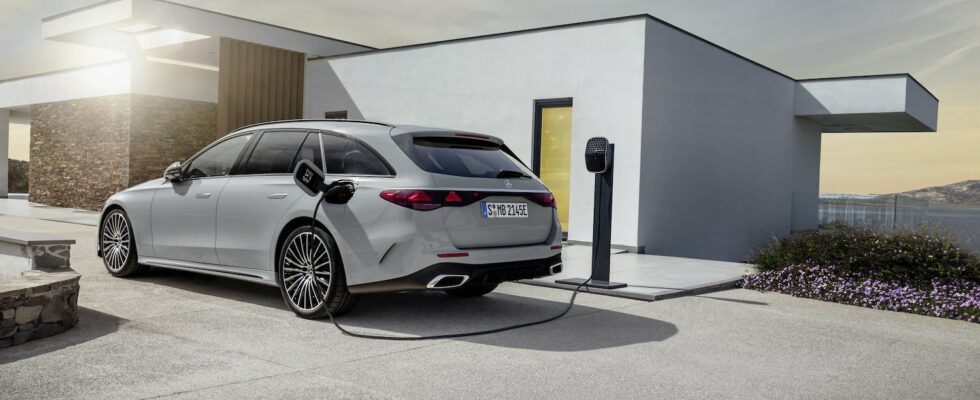In Europe, plug-in hybrid cars are in the spotlight. The reason: their fuel consumption, much higher than what the manufacturers announce on the technical sheets. The risk: that drivers pollute without realizing it. Would you be in favor of an outright ban on plug-in hybrid cars in Europe?
Plug-in hybrid cars integrate a thermal engine (petrol or diesel), as well as an electric motor and a lithium battery. Enough to travel long distances, with a full tank of gasoline, and to drive in zero-emission mode for shorter journeys.
But the problem is that when the battery is empty, plug-in hybrid cars consume a lot of gasoline. Much more than their 100% thermal counterparts, because of the weight of the battery and the electric motor. Company fleets recharge plug-in hybrid cars relatively little, which then increases their fuel consumption.
Recently, the European Commission put online the actual consumption data of plug-in hybrid cars sold in Europe in 2021. And it compared these figures with those communicated by manufacturers to customers on the technical sheet. Problem: the gap between theory and practice is colossal.
Consumption multiplied by 3.5
Indeed, on average, car manufacturers announce a gasoline or diesel consumption of 1.69 liters to travel 100 km. But in fact, the “trackers” installed by Europe on cars since 2021 provide very different information. You need, on average, 5.94 liters of gasoline per 100 km. That is 3.5 times more than what the car manufacturers announce.
And this is especially true for plug-in hybrid cars. For thermal cars, the difference also exists, but it is much less marked, of around 20%. At issue: the WLTP approval cycle which cannot take into account all the parameters of daily life.

To reestablish the truth and get closer to the actual consumption of plug-in hybrid cars, Europe will make changes to its test protocol. In order to better simulate the number of kilometers traveled with the electric motor.
The problem is that there is a huge difference between individuals and professionals. The former recharge their plug-in hybrids much more often, and end up with consumption of around 4 to 5 liters / 100 km. Compare with the 8 to 9 liters / 100 km of professional customers.
Towards a ban on plug-in hybrid cars?
This pushes certain NGOs, and in particular Transport & Environment, to call for a tightening of regulations, and an outright disappearance, in the long term, of plug-in hybrid cars. In any case, they will be banned from 2035 in Europe if the legislation does not change. Because over the entire life cycle, an electric car is in fact more virtuous from an environmental point of view. Especially in France, where electricity is mostly low-carbon.
Which therefore prompts us to ask you the following question: would you be for or against the ban on plug-in hybrid cars in Europe?
Loading
Would you be for or against the ban on plug-in hybrid cars in Europe?
Thank you for voting.
You have already voted for this poll.
Please select an answer.
Do not hesitate to leave the reason for your choice in comments, and to discuss calmly and with courtesy.
